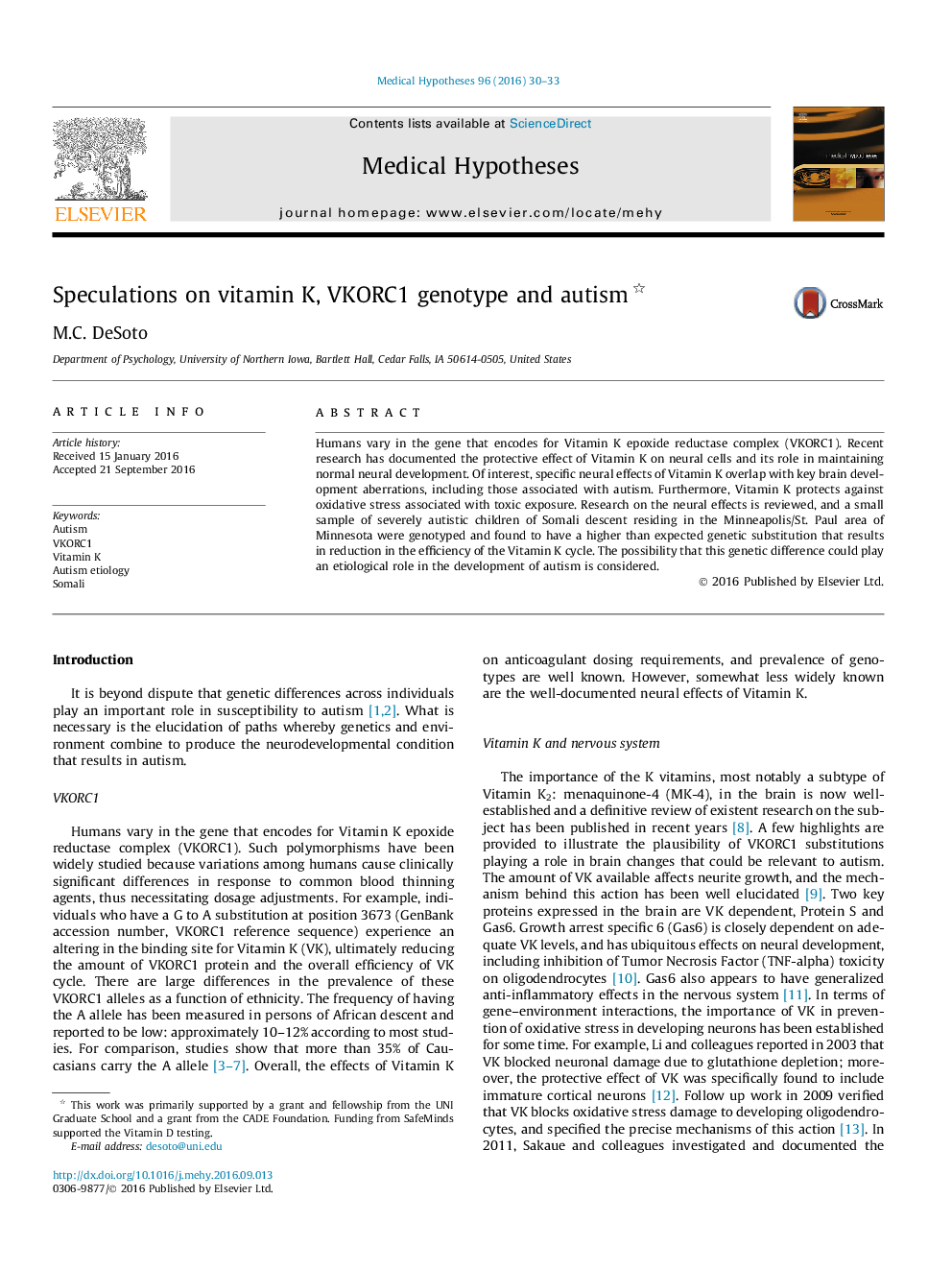| Article ID | Journal | Published Year | Pages | File Type |
|---|---|---|---|---|
| 5548641 | Medical Hypotheses | 2016 | 4 Pages |
Abstract
Humans vary in the gene that encodes for Vitamin K epoxide reductase complex (VKORC1). Recent research has documented the protective effect of Vitamin K on neural cells and its role in maintaining normal neural development. Of interest, specific neural effects of Vitamin K overlap with key brain development aberrations, including those associated with autism. Furthermore, Vitamin K protects against oxidative stress associated with toxic exposure. Research on the neural effects is reviewed, and a small sample of severely autistic children of Somali descent residing in the Minneapolis/St. Paul area of Minnesota were genotyped and found to have a higher than expected genetic substitution that results in reduction in the efficiency of the Vitamin K cycle. The possibility that this genetic difference could play an etiological role in the development of autism is considered.
Related Topics
Life Sciences
Biochemistry, Genetics and Molecular Biology
Developmental Biology
Authors
M.C. DeSoto,
